Filter by

Education Policies in the 21st Century Comparative Perspectives
The nation-state has assumed its current form after having undergone significant transformations. In the developmental and transformational process of the nation-state, the definition and expected functions of education as well as the forms of educational intervention have also transformed. This transformation became much more saturated starting in the last quarter of the twentieth century. Thi…
- Edition
- 1
- ISBN/ISSN
- 978981916045
- Collation
- XIV, 292p
- Series Title
- -
- Call Number
- 379 EDU a
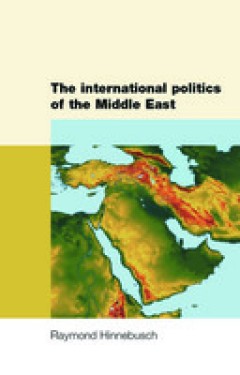
The international politics Of The Middle East
The international politics of the Middle East fills a major gap in the field of middle eastern political studies by combining international relations theory with concrete case studies. It will be of immense benefit to students of middle eastern politics, international relations and comparative politics. The book begins with an overview of the rules and features of the middle east regional syste…
- Edition
- -
- ISBN/ISSN
- 9780719053450
- Collation
- -
- Series Title
- -
- Call Number
- -

Domestic politics and norm diffusion in international relations : ideas do no…
This book collects Thomas Risse's most important articles together in a single volume. Covering a wide range of issues – the end of the Cold War, transatlantic relations, the "democratic peace," human rights, governance in areas of limited statehood, Europeanization, European identity and public spheres, most recently comparative regionalism – it is testament to the breadth and excellence o…
- Edition
- 17
- ISBN/ISSN
- 9781315623665
- Collation
- x, 328 p. : ill.
- Series Title
- -
- Call Number
- 327 RIS d
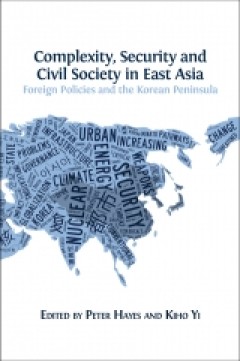
Complexity, security and civil society in East Asia. foreign policies and the…
Complexity, Security and Civil Society in East Asia offers the latest understanding of complex global problems in the region, including nuclear weapons, urban insecurity, energy, and climate change. Detailed case studies of China, North and South Korea, and Japan demonstrate the importance of civil society and ‘civic diplomacy’ in reaching shared solutions to these problems in East Asia and…
- Edition
- -
- ISBN/ISSN
- 9781783741144
- Collation
- xiii, 451 p. : ill. : ind. ; 24 cm
- Series Title
- -
- Call Number
- 355.03305 COM c
Indonesia dan diplomasi Irian Barat 1949–1962: memanfaatkan perang dingin
- Edition
- -
- ISBN/ISSN
- 9786024961848
- Collation
- xvi, 212 p. : ill. ; 21 cm.
- Series Title
- -
- Call Number
- 341.59951 SIS i
- Edition
- -
- ISBN/ISSN
- 9786024961848
- Collation
- xvi, 212 p. : ill. ; 21 cm.
- Series Title
- -
- Call Number
- 341.59951 SIS i

Popular music and public diplomacy : transnational and transdisciplinary pers…
In the early years of the Cold War, Western nations increasingly adopted strategies of public diplomacy involving popular music. While the diplomatic use of popular music was initially limited to such genres as jazz, the second half of the 20th century saw a growing presence of various popular genres in diplomatic contexts, including rock, punk, reggae, and hip-hop. This volume illuminates the…
- Edition
- -
- ISBN/ISSN
- 9783839443583
- Collation
- 328 p.
- Series Title
- -
- Call Number
- 306.4842 POP p
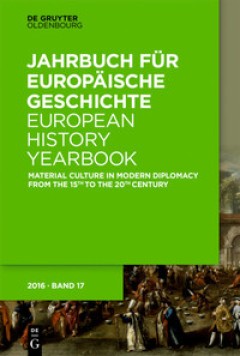
Material culture in modern diplomacy from the 15th to the 20th century
The present volume aims at outlining a new field of research with regard to the history of diplomacy: the material culture of diplomatic interaction in early modern and modern times. The material culture of diplomacy includes all practices in foreign policy communication in which single artifacts, samples of artifacts, or else the whole material setting of diplomatic interaction is supposed to …
- Edition
- -
- ISBN/ISSN
- 9783110463217
- Collation
- VI, 176 p.
- Series Title
- Jahrbuch für Europäische Geschichte / European History Yearbook
- Call Number
- 327.20903 MAT m
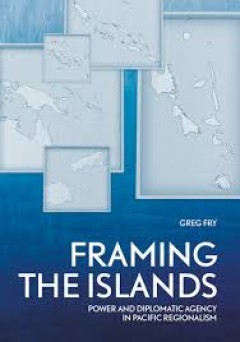
Framing the islands: power and diplomatic agency in Pacific regionalism
Since its origins in late eighteenth-century European thought, the idea of placing a regional frame around the Pacific islands has never been just an exercise in geographical mapping. This framing has always been a political exercise. Contending regional projects and visions have been part of a political struggle concerning how Pacific islanders should live their lives. Framing the Islands tell…
- Edition
- -
- ISBN/ISSN
- 9781760463151
- Collation
- xv, 399 pages : maps ; 24 cm
- Series Title
- ANU Press Pacific Series
- Call Number
- 327.2 FRY p
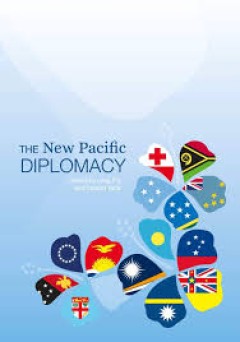
New Pacific diplomacy
Since 2009 there has been a fundamental shift in the way that the Pacific Island states engage with regional and world politics. The region has experienced, what Kiribati President Anote Tong has aptly called, a ‘paradigm shift’ in ideas about how Pacific diplomacy should be organised, and on what principles it should operate. Many leaders have called for a heightened Pacific voice in globa…
- Edition
- -
- ISBN/ISSN
- 9781925022810
- Collation
- xx, 305 pages : illustrations (some color), map ; 25 cm
- Series Title
- -
- Call Number
- 327.2 FRY n
 Computer Science, Information & General Works
Computer Science, Information & General Works  Philosophy & Psychology
Philosophy & Psychology  Religion
Religion  Social Sciences
Social Sciences  Language
Language  Pure Science
Pure Science  Applied Sciences
Applied Sciences  Art & Recreation
Art & Recreation  Literature
Literature  History & Geography
History & Geography